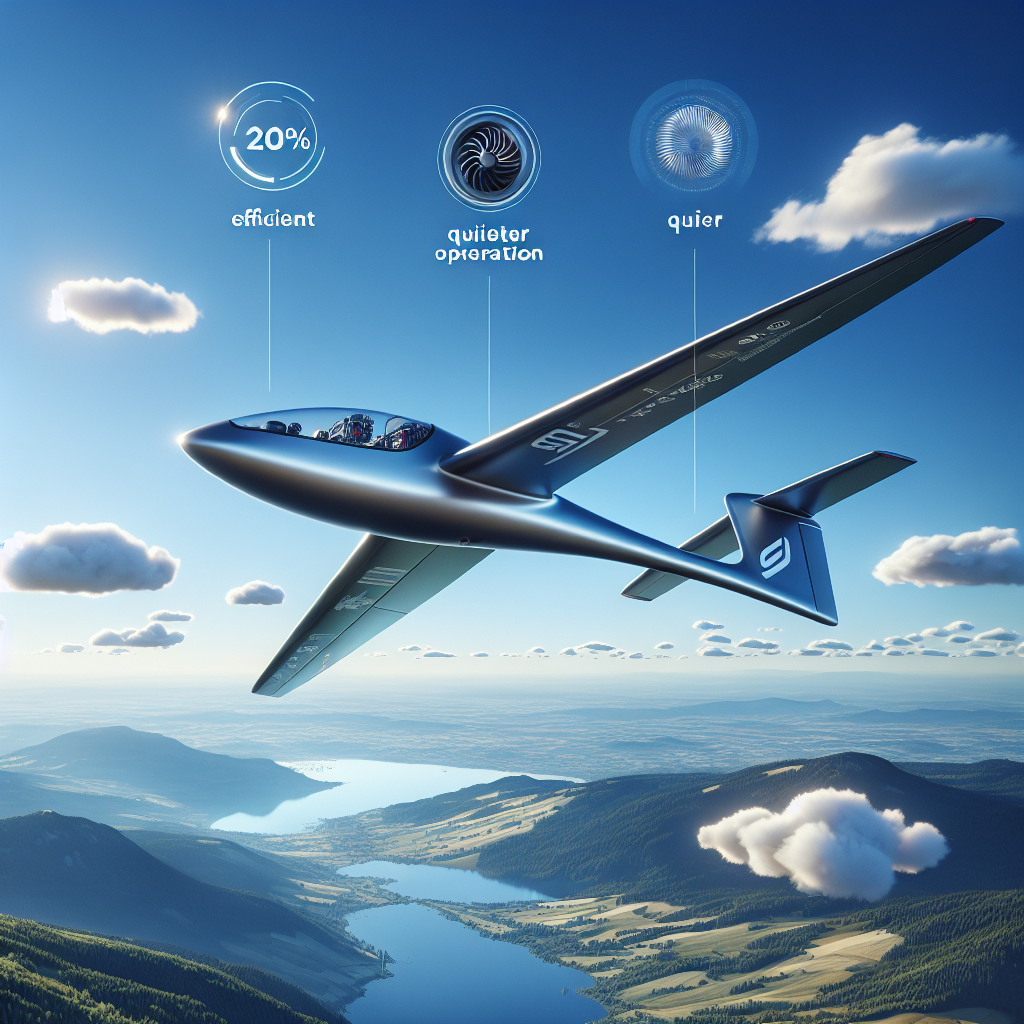An efficient propulsion system, developed by a Tennessee-based company, is soon expected to power a single-seat glider, promising not only enhanced performance but also reduced noise levels. This innovative technology is set to revolutionize the glider industry by offering a quieter and 20% more efficient solution for soaring through the skies.
The US firm’s breakthrough in propulsion systems comes at a time when environmental sustainability is at the forefront of technological advancements. By prioritizing efficiency without compromising on power, the company has positioned itself as a pioneer in eco-friendly aviation solutions. This development is especially significant in the context of gliders, where minimizing noise pollution and maximizing efficiency are key priorities.
The new propulsion system boasts a series of cutting-edge features that set it apart from conventional engines. One notable aspect is its streamlined design, which not only reduces drag but also optimizes performance. This means that the glider can achieve higher speeds and cover longer distances with the same amount of energy, making it a game-changer for aviation enthusiasts and professional pilots alike.
In addition to its performance benefits, the propulsion system also addresses the issue of noise pollution, a common concern in the aviation industry. By incorporating sound-dampening technology and advanced engineering principles, the US firm has succeeded in significantly reducing the noise generated during flight. This not only enhances the overall flying experience for pilots but also minimizes the impact on surrounding communities and wildlife.
The implications of this innovation extend beyond just the glider industry. As more companies prioritize sustainability and efficiency in their product development, the US firm’s propulsion system serves as a shining example of what can be achieved through ingenuity and dedication. By pushing the boundaries of traditional engineering practices, the company has unlocked a solution that not only meets the needs of today’s aviation sector but also paves the way for future advancements in the field.
Looking ahead, the integration of this propulsion system into single-seat gliders is poised to redefine the standards of performance and sustainability in the industry. With its combination of efficiency, power, and reduced noise levels, the technology represents a significant step forward in the quest for greener aviation solutions. As the demand for eco-friendly aircraft continues to grow, innovations like these will play a crucial role in shaping the future of flight.
In conclusion, the US firm’s quieter and 20% more efficient propulsion system marks a milestone in the evolution of glider technology. By prioritizing sustainability, performance, and innovation, the company has set a new standard for propulsion systems in the aviation industry. As the technology continues to be refined and implemented, it is likely to have a lasting impact on how we perceive and utilize gliders in the years to come.
efficiency, propulsion system, glider, sustainability, innovation












